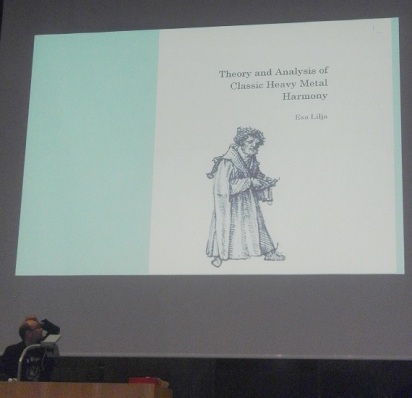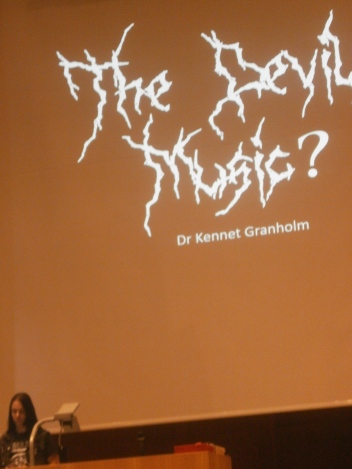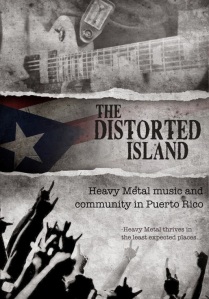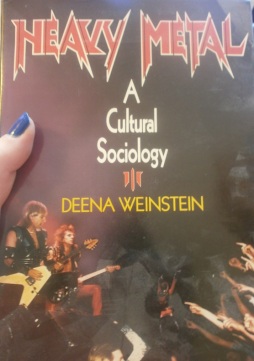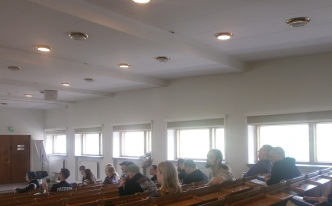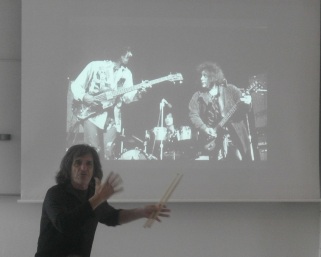I don´t need to categorize metal. Luckily I can stay out of these kind of discussions. There is metal that I like and there is some that I don´t. And that´s enough for me. Ever since I was growing up and started to listen to metal music, I soon got aware of the discussion. Soon I started to know what was considered heavy music. But immediately after that I was in the situation I had to describe the band to the others: was it speed, thrash or death metal?
The bands in the magazine articles told us over and over again new terms like power metal and doom metal. While the others refused to put themselves into any category. The debate about what is metal and what is not is an endless battle field. And people tend to take it personally. Because they care, I think. Those, who identify themselves strictly with belonging to certain group or sub group, care about that the most.
If you think the problem academically, there would have to be solid criteria you can lean on when categorizing. I am sure there is a certain consensus about the mainstream – and with that I am referring to the whole heavy music and talking about the very central area of the flow. At least there has to be certain heaviness in the music. What is heaviness then – not going there. But there are different kind of lyrics, different kind of outfits and the long hair is no longer a clear sign. When it is not heavy any more?
“Manowar are posers.” Daniel Frandsen
loudly announced in the end of his presentation. He had never forgiven Manowar´s bad gig some years ago. That brings us back to the previous posting I made of the metal conference. If there is a certain agreement of being metal considering the mainstream heavy, those in the marginal will fall automaticly to the role of negotiation. I understand the Manowar and posing with the same way they told Poison is False metal. Meaning, that there is a common accusation that those two bands care more about the image than actual music. Is it true or not, I don´t know. But I can sense that it would be against the unspoken and unwritten heavy metal norm. The rule of being authentic. Metal or not was the main question in Daniel Frandsen´s presentation. Whether something is metal or something else is always in relation to something else. That is true. We understand the world with contradictions and limits and categories. That is the theoretical background also in my own PHD thesis.
I can understand Daniel´s point remembering my own experiences. I was astonished seeing Lama (a punk band) and Barbe-Q-Barbies (a rock band) at Tuska Inferno stage in the year 2013. What the hell they were doing there. This was supposed to be heavy music festival – right? I kind of understood the idea of getting something different there but at the same time I felt betrayed. I had the feeling there is something wrong here. And it mattered…because that festival is important to me.
“Ozzy always sounds sad”
said Esa Lilja, one of the pioneers in academic heavy music research in Finland, comparing music samples (Mozart and Black Sabbath) with the mixture of major and minor intonations. As a music analyst he pointed out the usual intonations in heavy music saying also that those could be found in other music genres as well. He could easily put Mozart or Bach next to Black Sabbath and Deep Purple and say: listen, there is the similarity. Caviar to the general, I have to say, at least in my case.
“You don´t have to be a muso to be able to hear and recognize musical structures” was Esa´s main point. And he is right. When we grow into our culture and into heavy culture, we learn to recognize – at least something. Like main genres, main structures, similarities. I am sure the majority of us can say when listening to Black Sabbath that yeah, ok, this IS heavy metal. And we all agree.
Owen Coggins from the Open University (UK) had a different angle. He spoke about the letter type similarities in black metal band names and for example in bible. There are several memes about hard-to-read band names. Owen showed us band posters where English band names were translated into English only with another font. He told us also a story about two guys looking at a poster like that. They decided to go even though neither one have heard the band, themusic. But the font told them that the genre is right. It was all the cue they needed. That story reminded me of my journey in finding good bands. I went to a record store and tried to find the most brutal cover – then I bought the LP. Only after getting home I put the record on and listened the new music I owned. Usually I was satisfied with the method. Found lovely new bands like Death or Kreator (ok the cover of that LP is quite wussy).
“Black metal goes beyond music expression”
There is the whole culture with various aspects behind black metal – like in any sub genre. Font type, record cover art and certain musical structures are only scratches. Which gives millions of reasons to continue these kind of conferences. Many heavy metal researchers are also music makers themselves. “It is hard to analyze something you love” said Kenneth Granholm. That comes close to the idea of getting everything personally. Having a certain distance is usually a benefit in academic field.
My main focus on the Heavy Metal Conference was pure interest to the subject. Also, I wanted to know if I was finally feeling like home with these researchers. I have been looking for so long an academic group I could truly relate to. I was hoping to get the same kind of feeling of belonging that I have been having among the metal gig audience. Did not find it. Not accusing anyone but myself, though. So, continuing my journey without the burden of loyalty to any certain group. Taking the benefit of distance.
Tips of the day
Metal Music Studies First published in 2015 http://www.intellectbooks.co.uk/journals/view-Journal,id=236/
Metal Syndrome, trailer, a short documentary exploring the world of heavy metal music through the eyes of Finnish metal musicians https://www.youtube.com/watch?v=XwarJSv5hH0
The Distorted Island, trailer, a documentary that describes the metal history and scene in Puerto Rico http://youtu.be/tYyZVmMngmU
More about me: https://amholappa.wordpress.com/this-is-what-i-do/

